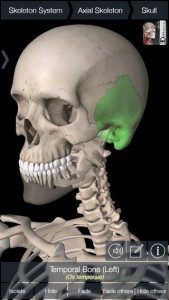Frogs and Bones: The Developments in E-Learning
 As technology progresses in it developments so does society. We adapt new technology into our daily lives for various purposes and various aspects of our lives. That is why it is no surprise that it affects our learning experience, especially our education. We have witnessed various changes in classrooms that range from the screen projector to smart- boards. Although children are being taught in different ways as well as experiencing it differently, they are still learning the same things.
As technology progresses in it developments so does society. We adapt new technology into our daily lives for various purposes and various aspects of our lives. That is why it is no surprise that it affects our learning experience, especially our education. We have witnessed various changes in classrooms that range from the screen projector to smart- boards. Although children are being taught in different ways as well as experiencing it differently, they are still learning the same things.
E-Learning is short for electronic learning in which technological advancements in new media play a part in such as laptops and tablets. The use of smart phones has also been part of the e-Learning process and two most notable apps that have developed recently are Froguts and Essential Skeleton 4.
Information:
Froguts is an app that helps students learn the anatomy of frogs by virtually dissecting and gain insight by the various features of the app such as audio narration, texts, visuals in 3D and interactivity. Moreover, the app allows them to quizzes or tests in order to gain their assessment of what they have learnt. In addition, the use of Froguts is considered to be low cost and is an alternative from facing animal ethical issues.
 Essential Skeleton 4 is also an app that helps students study the anatomy of the human skeleton. This anatomical model of the human skeleton is displayed in 3D, in which users can navigate and selects areas of the skeletal system. Similar to Froguts, it also provides voice narration with the various bone names in is Latin nomenclature and its description. It also provides quizzes and sharing capabilities. The nature of the Essential Skeleton 4 is that it is more engaging and it is practical to use.
Essential Skeleton 4 is also an app that helps students study the anatomy of the human skeleton. This anatomical model of the human skeleton is displayed in 3D, in which users can navigate and selects areas of the skeletal system. Similar to Froguts, it also provides voice narration with the various bone names in is Latin nomenclature and its description. It also provides quizzes and sharing capabilities. The nature of the Essential Skeleton 4 is that it is more engaging and it is practical to use.
Implications on Future Education
E-learning has been part of the education system since new media technologies were able to distribute and share information. This has started since the days of the radio to the present day of the internet. And with technological changes so does the experience. According to Ruiz, Mintzer and Leipzig (2006, 210) e-learning is changing the way people study in which it allows learning to be adaptive, collaborative and the change of the role of the teacher. When talking about adaptive learning, it is directed towards the individuals capability of organising, planning and allows individuals to move at their pace and towards the way they understand things. Collaborative learning is in terms of the interactions between learners, and how they use various platforms to help each other out. This is evident in chat rooms, blogs and forums. And lastly the role of the teacher is considered to be changing because instead of providing the first hand information they now facilitate the methods for students to study (Ruiz, Mintzer and Leipzig 2006, 211).
Both apps, Froguts and Essential Skeleton 4, show that individuals can learn with the new media technologies at their disposal. Both are medical apps that teach science in a different way, most of all Ruiz, Mintzer and Leipzig (2006, 211) explain that e-learning has its benefits in the medical education community, because it helps both with the traditional methods of teaching, giving a mixed form of teaching experience. In addition, Laurillard (2004, 1) feels that although e-learning is growing we have to remember that we have to look into the quality of the information that is delivered within these sets of programmes and steer away from the technological hype.
To summarise, e-learning is an ongoing process, and apps such as Froguts and Essential Skeleton 4 prove that the methods of learning are changing and that people and society have to be aware of the possibilities of learning. As mentioned before, in medical studies, apps that initiate better learning and understanding of scientific studies, has been regarded highly. But what about other topics? Is e-learning for everything or only some things?
Reference:
Laurillard, Diana. “E-learning in higher education.” Changing higher education: The development of learning and teaching (2006): 71-84.
Ruiz, Jorge G., Michael J. Mintzer, and Rosanne M. Leipzig. “The Impact Of E-Learning In Medical Education.” Academic Medicine 81.3 (2006): 207-212. Print.